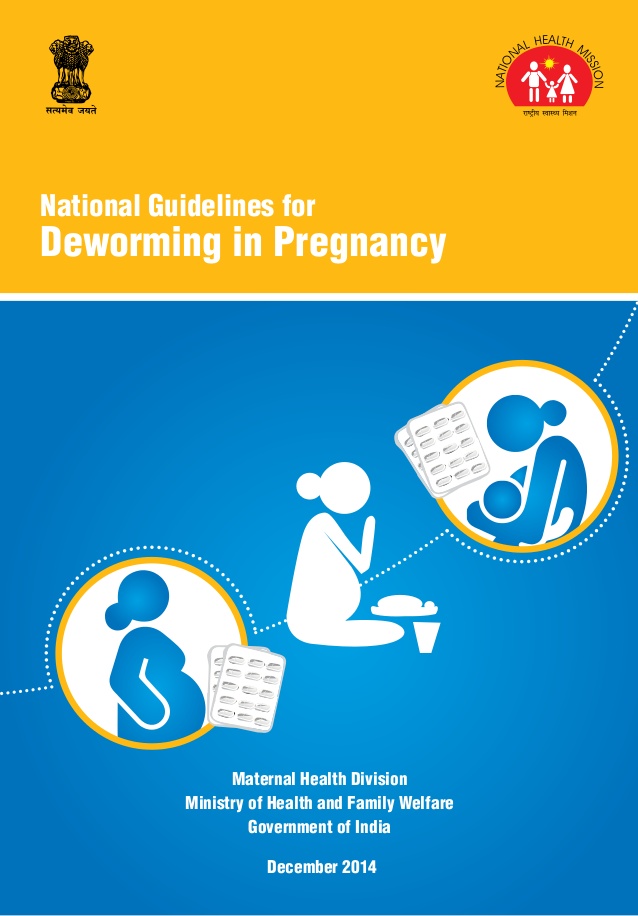
Deworming pregnant women reduces neonatal death, low birth weight –Study
- Health Sector
- No Comment
- 453
Deworming pregnant women can reduce the risk of neonatal mortality and odds of low birthweight in countries with soil-transmitted helminthiasis, a new study has revealed
The study, jointly carried out by researchers from the Syracuse University and SUNY Upstate Medical University, New York, and the World Health Organisation, was published in PLOS Neglected Tropical Diseases, a peer-reviewed, open-access scientific journal.
Based on findings from the study, the researchers called for an increased global effort towards the distribution of deworming medicine for pregnant women, noting that the benefits far outweigh the costs.
According to them, over 25 per cent of the world’s population, which is greater than 1.5 billion people, faces the burden of soil-transmitted helminth infections, a species of an intestinal parasite whose eggs develop in the soil before finding a new host.
They noted that the high infection rate is majorly due to lack of access to adequate sanitation facilities like toilets, and the consequent contamination of the environment with human faeces.
The researchers observed that while universal access to adequate sanitation is one of the sustainable development goals, parasite burdens are still causing harm.
They, however, noted that fortunately, deworming medicines are highly effective and safe.
“When women receive deworming medicine during pregnancy, we find two specific benefits for the baby: first, the risk of neonatal mortality – a baby’s death within the first four weeks of life decreases by an estimated 14%; second, the odds of low birth weight are an estimated 11% lower in countries with the lower transmission of soil-transmitted helminths.
“These results vary somewhat by transmission rate across different countries.
“Given the low cost of deworming medicine and fundamental health advantages, these findings call for an increased global effort toward the wide-scale distribution of deworming medicine for pregnant women.
“Global effort toward reducing STH infections is affordable, and the benefits far outweigh the program costs,” they stated.
The researchers explained that the study was carried out by measuring the impact of deworming medicine during pregnancy on the subsequent risk of neonatal mortality and low birth weight.
“It was conducted on 95 Demographic Health Survey Data, collected on more than 800 000 births, by utilising birth histories to measure the impact of routine deworming medicine during antenatal care on subsequent neonatal mortality, and low birth weight for births between 1998 and 2018 in 56 lower-income countries,” they added.
According to one of the study authors from the Department of Public Health, Syracuse University, New York, Bhavneet Walia, “Pregnant women who received deworming medication were associated with a 14% reduction in risk for neonatal mortality, with no difference between high and low transmission countries.
“We also found that in countries with low transmission of soil-transmitted helminths, deworming treatment decreased the odds of low birth weight by 11%. Although, these somewhat varied in relation to transmission rates across different countries.”
The researchers further revealed that they matched births on the probability of receiving deworming during pregnancy, and then modelled birth outcomes with the matched group to estimate the effect of deworming during antenatal care after accounting for various risk factors.
They also tested for effect modification of soil-transmitted helminth prevalence on the impact of deworming during antenatal care.
The Medical Officer, WHO Department of Control of Neglected Tropical Diseases, Dr. Antonio Montresor, said intestinal worms impact the health of women and girls of reproductive age, and that the study supports the fact that treating pregnant women can be beneficial.
“WHO has long recommended deworming women of reproductive age after their first trimester of pregnancy, and in areas where the prevalence of worm infections is 20% or higher,” he added.
According to the WHO, soil-transmitted helminthes are transmitted by ingesting microscopic eggs that are passed in the faeces of infected people and dispersed into the environment.
It noted that adult worms live in the intestines where they produce thousands of eggs each day. In areas that lack adequate sanitation, these eggs contaminate the soil.
“More than 1.5 billion people, or 24% of the world’s population, are infected with soil-transmitted helminths.
“Infections are widely distributed in tropical and subtropical areas, with the greatest numbers occurring in sub-Saharan Africa, the Americas, China and East Asia.
“Approximately 688 million girls and adult women of reproductive age live in areas which are endemic for intestinal worms, in more than 100 countries.
“The greatest number is found in sub-Saharan Africa, the Americas and Asia where reinfection is frequent in areas of high transmission,” the WHO stated.
The global health body noted that it coordinates shipment of donated medicines to countries requesting them and that they are then distributed freely by national disease control programs during mass treatment campaigns.
The WHO recommends that periodic deworming should be available to children and pregnant women in endemic countries.
The global health body noted that deworming is not the only answer, but that a permanent solution can only be obtained by a substantial improvement in access to sanitation – a process that is normally slow and expensive.
Written By Tessy Igomu
Source: Healthwise. Punchng
Link: https://healthwise.punchng.com/deworming-pregnant-women-reduces-neonatal-mortality-low-birth-weight-study/





